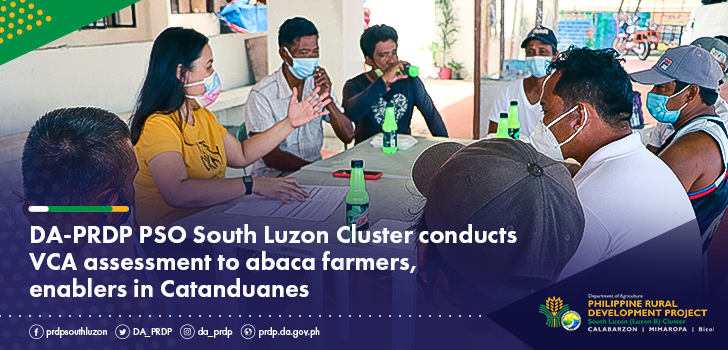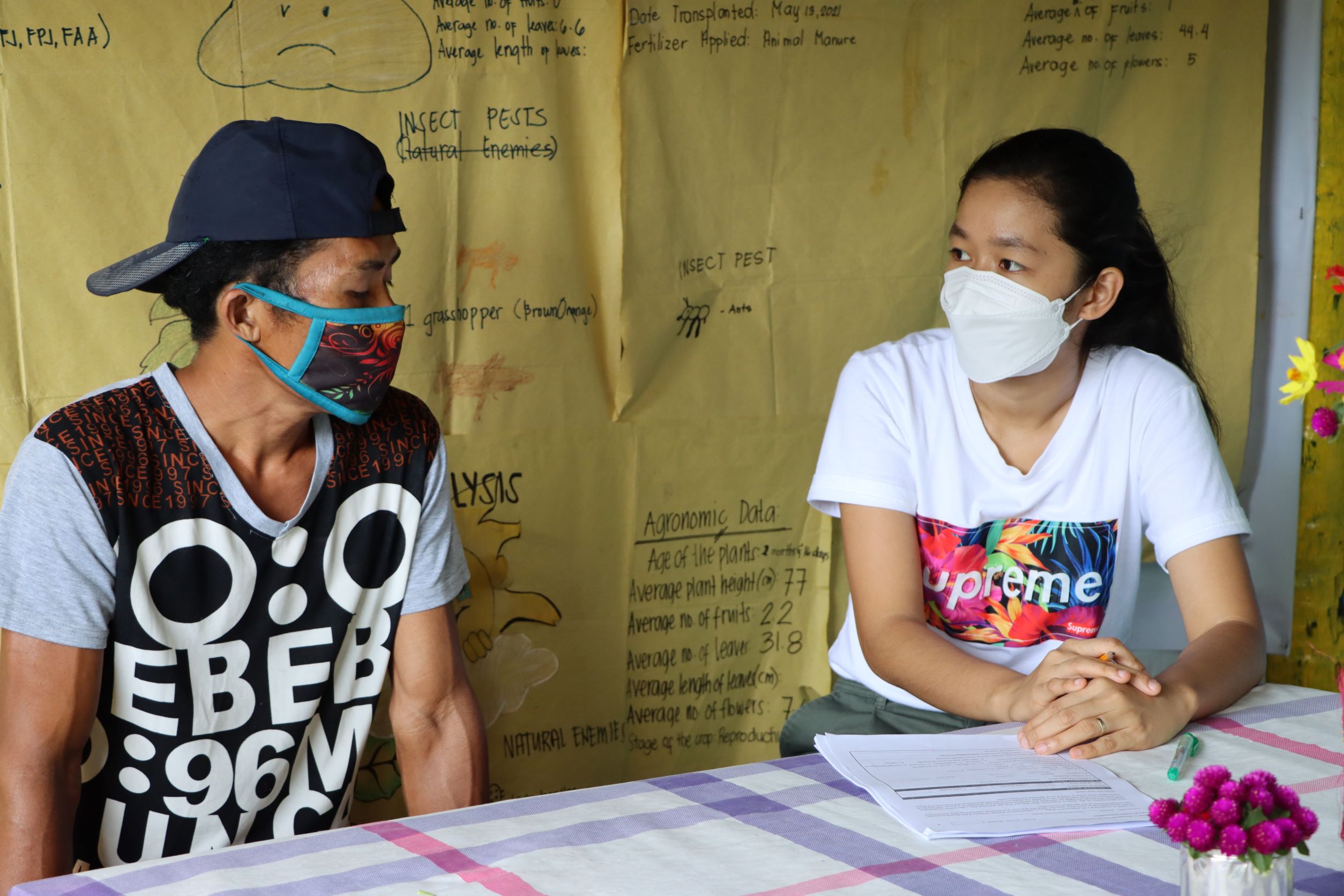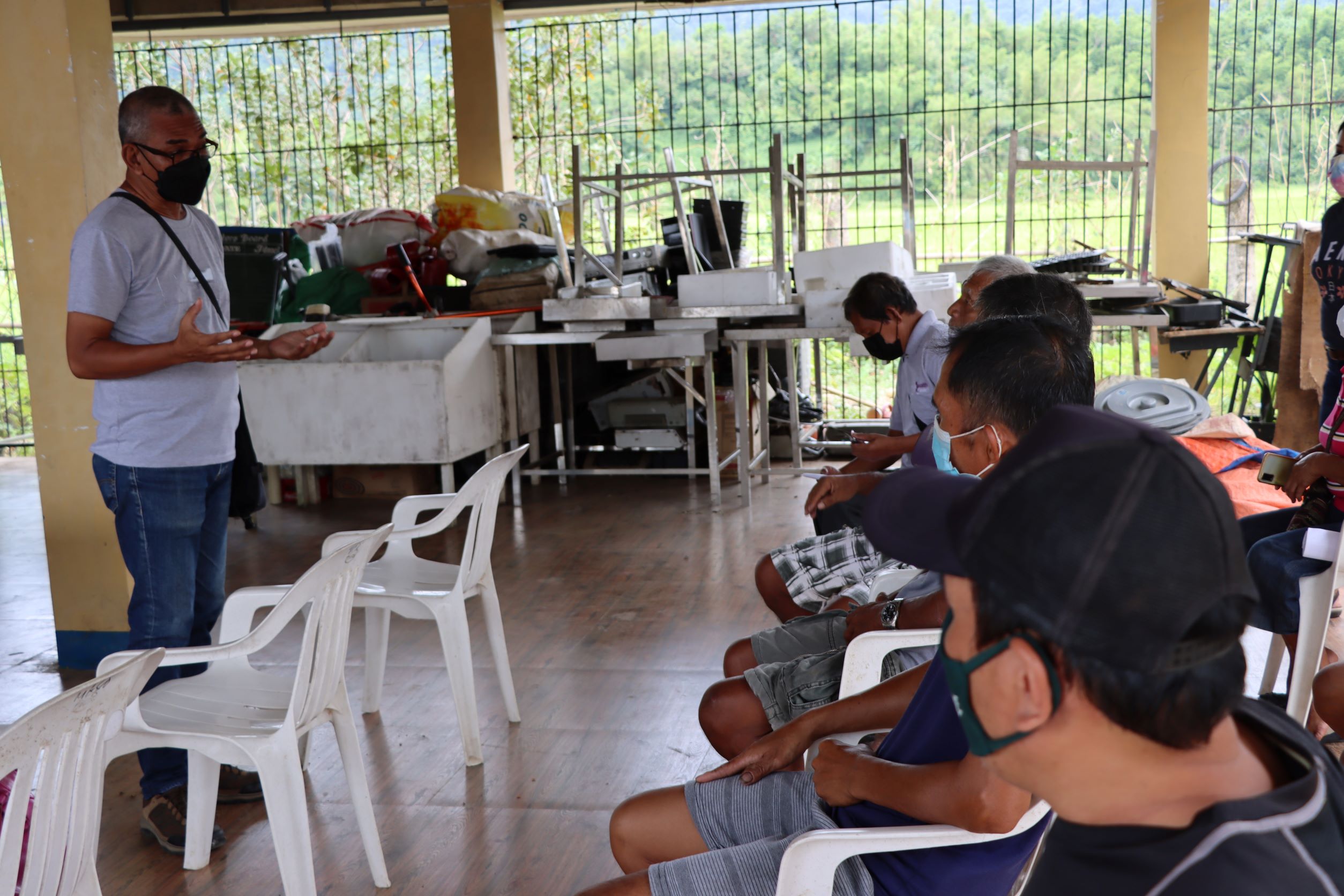
DA-PRDP PSO South Luzon Cluster conducts VCA assessment to abaca farmers, enablers in Catanduanes
The Department of Agriculture – Philippine Rural Development Project (DA-PRDP) Project Support Office (PSO) South Luzon Cluster, together with the Regional Project Coordination Office (RPCO) Bicol, conducted a Value Chain Analysis (VCA) Assessment of abaca in eight (8) abaca-producing municipalities in Virac, Catanduanes from August 2-5 and 16-18, 2021.
The evaluation conducted was aimed to provide proof of attaining the abaca value chain’s desired outcomes, using the VCA translated into Provincial Commodity Investment Plans (PCIP).
Additionally, it aimed to determine how the VCA was used as a planning tool and how it impacted the planning, budgeting, and implementation of agri-fishery interventions of the DA, Local Government Units (LGUs), and other enablers. Likewise, it assesses the sustainability of the abaca value chain’s positive results.
Results of the VCA Assessment will be submitted to the DA and PRDP management, as well as the Provincial LGU of Catanduanes, and concerned agencies in September 2021, to serve as basis for improvement of the abaca value chain.
The VC Assessment team consists of representatives from the PSO South Luzon Cluster and the RPCO V that facilitated simultaneous Key Informant Interviews, Focus Group Discussions, and Household Surveys to abaca farmers, and financial and non-financial enablers in Virac, Viga, Panganiban, Bato, San Miguel, Caramoran, San Andres, and Baras. Preparation of synthesis and daily activities were also conducted by PSO South Luzon Cluster virtually, with the Information, Advocacy, Communications and Education (InfoACE) Unit in charge of spot interviews of key players for each segment of the value chain.
Timbaan Abaca Farmers’ Association President Noly S. Sales said that the VCA Assessment conducted gave them hope that assistance is coming for abaca farmers in the province.
“Medyo nabuhayan kami at least igwa ako ning maipapaabot duman sa sakuyang mga miyembro na igwa ning posibilidad na maabot na benepisyo para sa samuya,” Sales said.
Provincial Agriculturist Nelia Teves stressed the importance of the VCA Assessment for future use.
“Mahalaga (ang VCA Assessment) because kung ano man ang magiging resulta noon, mati-trace natin ang gap and ma-address natin ang issue regarding the VCA – ‘yung mga inputs doon na nakuha or outputs na nakuha doon sa VCA Assessment could be a planning tool for us in the future,” Teves added.
Moreover, Provincial Planning and Development Coordinator Engineer Elsie B. Reyes related that the VCA Assessment will be very helpful for the future updating of provincial plans and in prioritizing budget allocation for Programs, Projects, or Activities (PPAs).
VCA is one of DA-PRDP’s planning tools used in outlining enterprise (I-REAP) and infrastructure development (I-BUILD) subprojects. It is a study of the value added to provincial priority agri-commodities at all stages from input supply, agricultural production, assembly, processing, and marketing. (Annielyn L. Baleza, DA RAFIS V/PRDP-Bicol InfoACE)

PRDP PSO South Luzon I-PLAN Head Jo Marie Libarnes conducts a key informant interview with Municipal Agriculture Officer Gerardo T. Tumala of Viga, Catanduanes.

PRDP-Bicol I-PLAN Project Development Associate Ermar B. Dela Cruz conducts a household survey with an abaca farmer in Virac, Catanduanes.

PRDP-Bicol Associate M&E Officer Emegene San Buenaventura conducts a household survey with an abaca farmer in San Miguel, Catanduanes.

Gulayan sa Barangay Program and Abaca Focal Person Ariel Tabuzo orients abaca farmers in Viga, Catanduanes about the objectives of the VCA Assessment of abaca to be conducted by PRDP.


